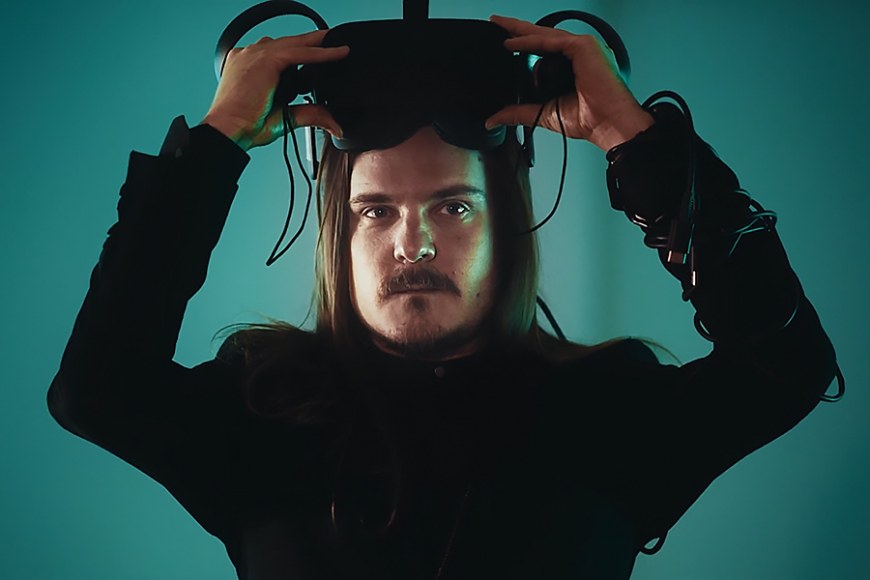A year from launch is a significant milestone, Tampere University marks the successful completion of the first year of the CONVERGENCE of Humans and Machines research field within the Doctoral Programme of Humans and Technologies – DPHAT. Initiated with a generous €3 million grant from the Jane and Aatos Erkko Foundation in the summer of 2022, CONVERGENCE has emerged as a trailblazing initiative at the forefront of multidisciplinary research.
The vision of CONVERGENCE is to bridge the gap between the natural sciences & engineering (ENG) and social sciences & humanities (SSH) through a holistic and multidisciplinary approach. This unique doctoral field has laid the foundation for groundbreaking research in areas such as affective computing, gamification, augmented reality, cybernetics, ubiquitous connectivity, dispersed computing, AI & machine learning, and robotics & machine perception.
Rationale
Over the past year, Tampere University has successfully launched a new doctoral research field based on the recognition that technology has become an integral part of human life and society. The project, led by Professor Juho Hamari, has evolved to address the need for redefining and renegotiating the roles of human and machine in society.
Professor Hamari emphasizes the ongoing CONVERGENCE of humans and machines, where people are increasingly integrated with technology, influencing culture and practices. Simultaneously, machines are becoming more dynamic and creative. This CONVERGENCE has prompted a reevaluation of humanity and technology.
The CONVERGENCE project has effectively brought together expertise from natural sciences, engineering, social sciences, and humanities in a multidisciplinary union. Doctoral research projects have delved into novel technological developments, including affective computing, gamification, augmented reality, cybernetics, ubiquitous connectivity, dispersed computing, AI & machine learning, and robotics & machine perception.
The doctoral research field has successfully instilled an awareness of human perspectives in technological progress. Specialists and researchers are equipped to understand the challenges and opportunities arising from the convergence of human and machine. The societal impact of technology, human interaction, and overarching themes of human-centeredness, sustainable development, and resilience are integral components.
The profound changes in the structure and operation of societies and communities due to the convergence of human and machine present new challenges. Addressing ethical issues requires a synthesis of human sciences and technological understanding. Consequently, the project responds to the needs of research, society, and industry by providing education and training that is ethical, holistic, and sustainable, seamlessly integrating technology and humanity.
A key element of the project’s success lies in networking doctoral researchers with collaborating organizations. The six-year initiative has facilitated career development, allowing researchers to pursue careers in research or various organizations. Stakeholders actively contribute by proposing real-life problems for doctoral researchers to solve.
Petri Ahokas, Head of Tampere Technology Center at Nokia, expresses enthusiasm about the project’s commencement, citing Tampere University’s strong studies in the thematic areas and its unique position for conducting widely converged studies with strong links to society, including companies and a robust partner network with other universities.
Progress through the first year
As a result of a successful inaugural year, CONVERGENCE has successfully identified and hired 16 young and motivated researchers, with the last one starting this month. These doctoral researchers will embark on a transformative journey to become holistic experts in their respective fields. The selection of doctoral research projects is diverse, reflecting the dynamic nature of CONVERGENCE’s objectives and encompassing the latest developments in human-machine interactions.
Each doctoral student will benefit from dual supervision, with two leading senior ITC faculty members guiding their research endeavors. In a testament to the program’s commitment to fostering collaboration, the main supervisor and co-supervisor hail from different research fields – ENG and SSH. Additionally, some projects involve collaboration with the gearbox of academic community – PostDocs, or representatives from industry organizations, further enriching the learning and research experience.
Professor Juho Hamari, the lead of CONVERGENCE, expressed enthusiasm about the progress made in the first year:
– CONVERGENCE has exceeded our expectations in terms of joining new researchers. The collaborative spirit between researchers from diverse backgrounds has been truly inspiring. We are excited to welcome the next cohort of doctoral researchers who will undoubtedly contribute to shaping the future of human-machine convergence.
The coordinator of the programme, Dr. Aleksandr Ometov, is also thrilled to welcome such a high-caliber group of young researchers to CONVERGENCE:
– Their passion for multidisciplinary research aligns seamlessly with the objectives of our project. Together, we are set to break new ground in understanding the Convergence of humans and machines.
During the first month of the majority of doctoral researchers being at Tampere University, they already have received a very intense training on transferrable skills, publishing & LaTeX, posters, and academy survival skills. Moreover, the CONVERGENCE team has already presented their tentative research plans via 3 minutes pitches during the Doctoral Consortium event at Academic Mindtrek conference. The pace is fast, yet the rocky academic mountains to climb are ahead!

